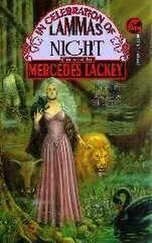Luke Devenish - Nest of vipers
Здесь есть возможность читать онлайн «Luke Devenish - Nest of vipers» весь текст электронной книги совершенно бесплатно (целиком полную версию без сокращений). В некоторых случаях можно слушать аудио, скачать через торрент в формате fb2 и присутствует краткое содержание. Жанр: Исторические приключения, на английском языке. Описание произведения, (предисловие) а так же отзывы посетителей доступны на портале библиотеки ЛибКат.
- Название:Nest of vipers
- Автор:
- Жанр:
- Год:неизвестен
- ISBN:нет данных
- Рейтинг книги:5 / 5. Голосов: 1
-
Избранное:Добавить в избранное
- Отзывы:
-
Ваша оценка:
- 100
- 1
- 2
- 3
- 4
- 5
Nest of vipers: краткое содержание, описание и аннотация
Предлагаем к чтению аннотацию, описание, краткое содержание или предисловие (зависит от того, что написал сам автор книги «Nest of vipers»). Если вы не нашли необходимую информацию о книге — напишите в комментариях, мы постараемся отыскать её.
Nest of vipers — читать онлайн бесплатно полную книгу (весь текст) целиком
Ниже представлен текст книги, разбитый по страницам. Система сохранения места последней прочитанной страницы, позволяет с удобством читать онлайн бесплатно книгу «Nest of vipers», без необходимости каждый раз заново искать на чём Вы остановились. Поставьте закладку, и сможете в любой момент перейти на страницу, на которой закончили чтение.
Интервал:
Закладка:
The flautist stopped. The chorus spoke in one voice: 'Presenting Echo and Narcissus!'
The freedwomen swooned in front of us.
'That old story?' said Lygdus.
The chorus man with the clapper board began a rhythmic beat, keeping time like a water clock, opening and closing the arms.
The star pantomimus leaped onto the stage from the entrance at the opposite side and the crowd burst into cheers. His entire head was covered by a blank mask that removed all hint of his features. And yet it seemed that he owned the most desired face in the world, so expressive was his body in conveying exquisite beauty and grace. His limbs and torso suggested youth — perhaps he was no more than fifteen. His limbs were lean, yet muscular. His feet were brown and bare. His tunica was yellow, feather-light and brief, floating around his hips as he danced.
The acknowledgement the pantomimus gave the crowd was heartfelt, given with the simplest gestures to make him seem humble and moved. There wasn't a theatregoer in Rome who disliked the musica muta. Its players were adored celebrities. They expressed actions, feelings and passions more beautifully and intelligently than was possible with the spoken word. They never uttered a sound. Instead their audiences projected the most alluring words imaginable upon them, wholly within the mind. The great stars of Augustus's day — Bathyllus, Pylades, Hylas — had all retired, but a new generation of mimes competed in their wake, fighting for the fame and wealth that came to the very best of them. Yet they were not without controversy. Women were feared susceptible to the sensual dances and mythological themes — not that it stopped them attending. Some mimes had been known to perform at private dinner parties and intimate engagements hosted by patrician wives. Some were even said to perform naked.
As the pantomimus finished his gestures of thanks, the rest of the musicians joined the flautist in resuming the opening tune, filling the theatre with a lush, evocative score. The chorus began to recite the canticum — the text of the play. 'When Narcissus, the son of Cephisus, reached his sixteenth year,' they announced, 'he seemed both man and boy.'
The mime began to dance as the mythical youth.
'Many boys and many girls fell deeply in love with him,' said the chorus, 'but his beautiful body held a pride so strong that none of his suitors dared touch him.'
The commotion at the side of the auditorium caught Lygdus's attention before it caught mine. He made a little cry.
'See, you're enjoying it now,' I said, my eyes on the stage.
Lygdus pointed. 'Guards.'
A dozen Praetorians were flooding the stage from the wings.
'This isn't in the play,' I said.
A hobnailed boot connected with the backside of the dancing pantomimus and sent him sprawling, mask first, on the hard marble floor. He grazed the skin from his knees. Several of the musicians cried out. The guards turned their attention to them and plucked the instruments from their hands.
'Don't break it!' one of them cried. The guard who had the musician's cithara gave a questioning look to a superior officer. I felt sick when I saw who it was.
'Sejanus!' Lygdus said. 'What's happening? What's going on?'
Sejanus nodded and the guard with the cithara dropped the instrument to the ground with a clatter. The other guards did the same. By now the chorus had stopped the canticum and joined the bewildered musicians staring at the pile of instruments. All of them took off their masks except one — the man who held the clapper. The humiliated pantomimus remained where he had fallen, his own mask still in place. He didn't move.
Sejanus walked to the front of the stage and, ignoring the mime, took a long, solemn look at the faces of the bewildered audience. It took a moment for fear to strike some of them, but when it did they began to cover themselves under veils and shawls. Sejanus smiled. 'Yes, hide yourselves if you like,' he addressed them, 'hide your shame.'
There were howls from some of the senators' seats.
'The shame is yours! You have interrupted the musica muta, Prefect!' one senator shouted. 'What is the meaning of it?'
'Explain yourself, man!' demanded another.
Sejanus cleared his throat, his smile vanishing. 'Performances of the musica muta are now banned from the Ludi.'
A terrible quiet fell upon everyone, on and off the stage.
'Banned,' Sejanus repeated.
People began to look at each other in fright, but the senator who had first spoken stood up in his seat so the audience could see who he was. Lygdus and I craned our heads to look. 'It's Silius,' I said. 'Sosia's husband. He's a friend of Agrippina's.'
Dignified and impressive, Silius addressed Sejanus without deference. 'A ban of this nature would surely come from a senatorial decree, Prefect?' he called out. 'Yet I can't remember any such decree being passed. How could that be?'
Sejanus kept his eyes upon Silius for what seemed like minutes before he deigned to respond. 'Also forbidden is the attendance of senators at private homes that host the musica muta. Senators are similarly forbidden from visiting the homes of artists who make a living from these entertainments. Walking down the street with these artists, or engaging with them in any other way, is also forbidden.'
The stunned audience was deathly still but Silius remained standing. 'The Emperor chooses not to discuss these measures with his senators at all?'
Sejanus said nothing.
'On what grounds have these bans been made?' Silius demanded.
On the stage at Sejanus's feet the fallen pantomimus made an almost imperceptible movement with his fingers. His first digit and his thumb curled together to make an O, visible to no one but himself and the few patrician men of the front row whose eyes would not meet Sejanus's. The pantomimus snaked his other hand along the marble with his index finger pointing. It met the little O and the outstretched finger crept snugly inside the hole in a low and crude gesture that was unmistakable to those few who could see it. A patrician man laughed before clapping his hand across his mouth.
Sejanus planted his boot on the pantomimus 's fingers. 'The bans are made on the grounds of obscenity,' he declared, grinding the digits into the stage.
Because, as slaves, our seats were the very worst in the Theatre of Pompey, being in the final tier and only available when unwanted by the freedwomen who occupied the rows in front, Lygdus and I were among the last to leave the cancelled performance. Sejanus left his guards in place to ensure an orderly exit of the crowd and instructed that the artists of the musica muta be forced to remain on stage until every member of the audience had gone, slaves included. The message was clear: the artists, whether celebrities or not, were now deemed lower than slaves.
As the ranks of Roman society filed past the stage, first one, then another of the bravest fans whispered words of sympathy to the pantomimus, who stood dignified and erect, his broken hand oozing blood at his side. Without Sejanus present, the Praetorians acted as if nothing was amiss — even they believed the bans were excessive. With the guards' indifference the words of condolence grew more passionate and the pantomimus made a signal to one of the chorus men standing behind him. The one holding the clapper board — the only one still wearing a half-mask — stepped forward and loosened the strings of the pantomimus 's full head mask, lifting it from him and revealing a face that was every bit as beautiful as the face of mythical Narcissus. The pantomimus remained where he stood, letting his beauty be seen by all. Some of the departing women began to weep at the sight of him and, on the stage, the musicians joined in.
When it came the slaves' turn to file past the stage and leave, the pantomimus would have been forgiven had he turned around or averted his eyes. Every slave already understood and was offended by the insult that had been given to him in being forced to remain until we had gone. The star of the musica muta was as loved by Rome's lowest as he was by those of the very highest rank. No one wished to see him debased. But the mime stayed in place and bestowed a smile of immeasurable love and warmth upon us slaves. Hearts soared.
Читать дальшеИнтервал:
Закладка:
Похожие книги на «Nest of vipers»
Представляем Вашему вниманию похожие книги на «Nest of vipers» списком для выбора. Мы отобрали схожую по названию и смыслу литературу в надежде предоставить читателям больше вариантов отыскать новые, интересные, ещё непрочитанные произведения.
Обсуждение, отзывы о книге «Nest of vipers» и просто собственные мнения читателей. Оставьте ваши комментарии, напишите, что Вы думаете о произведении, его смысле или главных героях. Укажите что конкретно понравилось, а что нет, и почему Вы так считаете.












